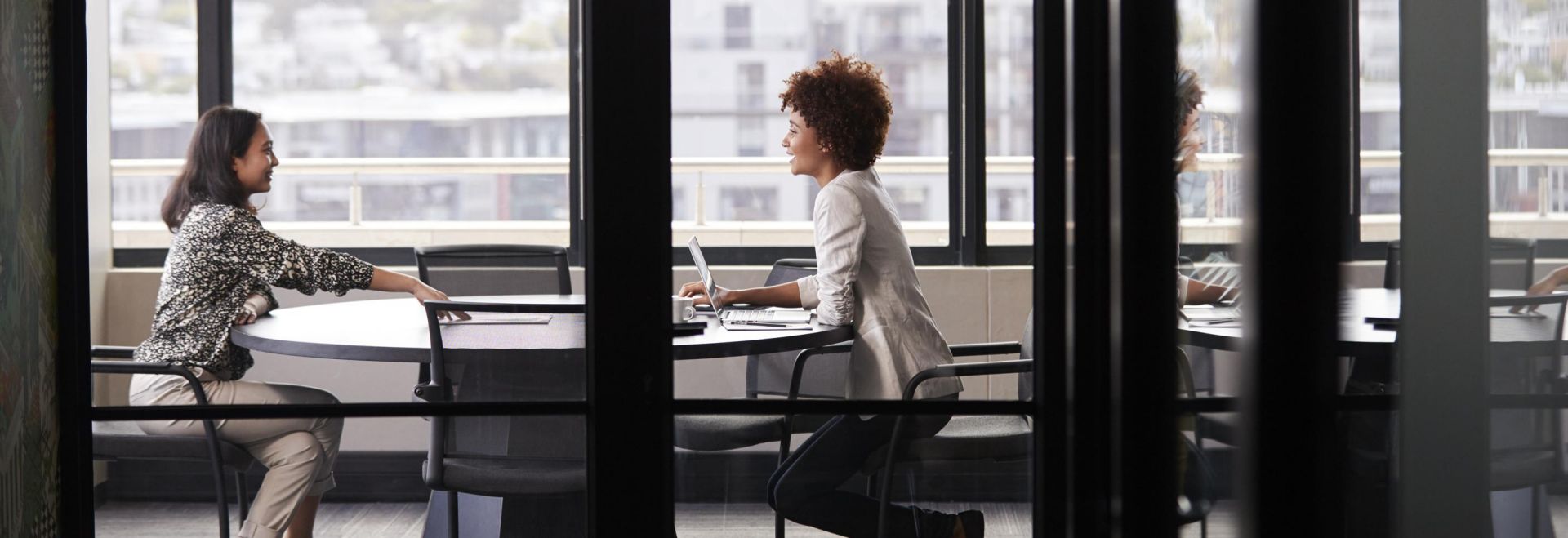
Dedicated to helping you
To find out how Barclays can help you make your cash management and payments more efficient, contact your Relationship Manager.

How fiduciaries can support their clients in uncertain times
26 June 2020
5 minute read
2020 will be remembered as a year of change – to how we live, work and how our attitudes and priorities reflect that. We look at some of the topical issues clients are approaching their fiduciaries to discuss, and how best to support them.
During times of uncertainty, understanding and responding to your clients’ needs has never been more crucial. As COVID-19 brings about unprecedented change, it’s natural that they’ll turn to their trusted advisers to discuss challenges, opportunities or even issues that might be on their minds.
“From talking to fiduciaries, there are a number of areas that clients are keen to explore that have been triggered by the pandemic and the response to that,” says Adele Bohlen, Head of Fiduciaries. “Some are practical issues, whilst others may be due to the unique set of circumstances we’re operating in, or even emotional triggers. One of the benefits of working with Barclays is the breadth of expertise we have available for fiduciaries and their clients, which means we can support a range of needs.”
One of the benefits of working with Barclays is the breadth of expertise we have available for fiduciaries and their clients, which means we can support a range of needs.
We asked our experts to answer some of the questions fiduciaries are taking from their clients.
Even in the most unprecedented circumstances, there are opportunities for investors, and many investors will also be considering the resilience of their portfolios and looking for chances to diversify to mitigate risk. We’ve also seen increased interest in Environmental Social and Governance investments. A focus on security, safety and stability remains key and careful analysis should form the basis of any investment decision. Working with a partner that can provide scale and depth and with proven form throughout countless economic cycles, can provide the confidence investors need in uncertain times.
With over half of people in the UK not having a will1, it’s an issue that affects a great many people. For wealthy individuals, the risks are even higher. Assets held in multiple jurisdictions and the tax implications of dying intestate make this potentially complex.
The pandemic has focused minds, however, and we’re seeing a number of queries around estate planning. But where to start?
Trusts are often considered as a vehicle for passing wealth to the next generation, but there are a few things to think about. Perhaps the main one is who to appoint as trustee. For high net-worth individuals or those with complex requirements, a professional firm becomes essential. It ensures that the trust is managed robustly, that the legal and financial side is catered for and record-keeping is diligently adhered to. It can also ensure that assets are protected and distributed appropriately, even across multiple generations.
The pandemic may have generated a wave of goodwill with large-scale charitable gifts from corporations, individuals and foundations reaching a worldwide total of $7.8bn in April 20202. However, to really maximise the effect of your philanthropy it’s important to think strategically, not reactively and give real consideration to what you’re hoping to achieve in the long-term. For example, you may have a real passion for sustainability or a personal reason to support medical research.
Considering the amount of personal involvement you desire and can realistically dedicate to your chosen cause is also important when assessing the vehicles available to you. Working with an expert can help you take an objective view about which investment option suits your circumstances, aims and needs – whether that’s making a donation to an established charity, creating a charitable trust or setting up a foundation. The bottom line is that you want the money you invest to produce specific results – just as you would when investing in a company, so research is essential.
With countries entering lockdown at different rates and borders closing for extended periods, clients may have found themselves having to remain in their second home for a longer period than anticipated. This could have implications for tax status. In the UK, for example, the Statutory Residence Test sets out a 60-day annual limit. However, in response to the pandemic, HMRC published new guidance for those unable to freely leave or return to the UK. It sets out exceptional circumstances for assessing UK tax residency status and states that each claim will be considered individually.
As Barclays does not provide tax or legal advice, it is highly recommended clients obtain independent tax / legal advice in all relevant jurisdictions as the rules will vary from one jurisdiction to the next.
There’s been a huge increase in cyber-criminal activity since the start of the COVID-19 crisis, as criminals exploit the growing use of digital technology in our lives, and this is a valid concern. The entire chain, from us, to fiduciaries and to clients and their suppliers have a responsibility to take cyber-security seriously.
There are some steps we should all be taking to protect ourselves, our family and our businesses in the current environment. These include, ensuring systems, software and firewalls are up to date, verifying payment instructions through authorised channels, being suspicious of unsolicited communications, using secure channels such as virtual private networks and locking down passwords on home routers. Our article on cybercrime prevention provides more information.
To find out how Barclays can help you make your cash management and payments more efficient, contact your Relationship Manager.
If you have any questions or want to discuss your investment options, contact us.
We may ask you questions about your tax position and may explain to you the general legal or tax position relating to our products or services. You understand and agree that we do this to provide you with information on those products or services and to assist you in selecting which products or services may be appropriate.
You acknowledge that we aren’t a legal or tax adviser and don’t provide legal or tax advice. You understand and agree that you must obtain your own independent advice, tailored to your own particular circumstances. You’ll not rely on the information provided by us as a substitute for taking your own independent tax and legal advice.
You have sole responsibility for the management of your tax affairs, including making any applicable filings and payments and complying with any applicable laws and regulations in relation to taxation. We don’t condone or support any conduct by you that is in violation of any rules, regulations or laws applicable to yourself.
Certain jurisdictions have a requirement for us to either withhold tax on certain payments and/or report these payments or other information to tax authorities.
Please refer to any terms and conditions provided to you for additional tax related information.
United States Taxation IRS CIRCULAR 230: We don’t provide tax advice. Please note that (i) any discussion of US tax matters can’t be used by you for the purpose of avoiding tax penalties; (ii) any information which may be provided on this Site is provided to support the promotion or marketing of the matters addressed herein; and (iii) you should seek advice based on your particular circumstances from an independent tax advisor.
